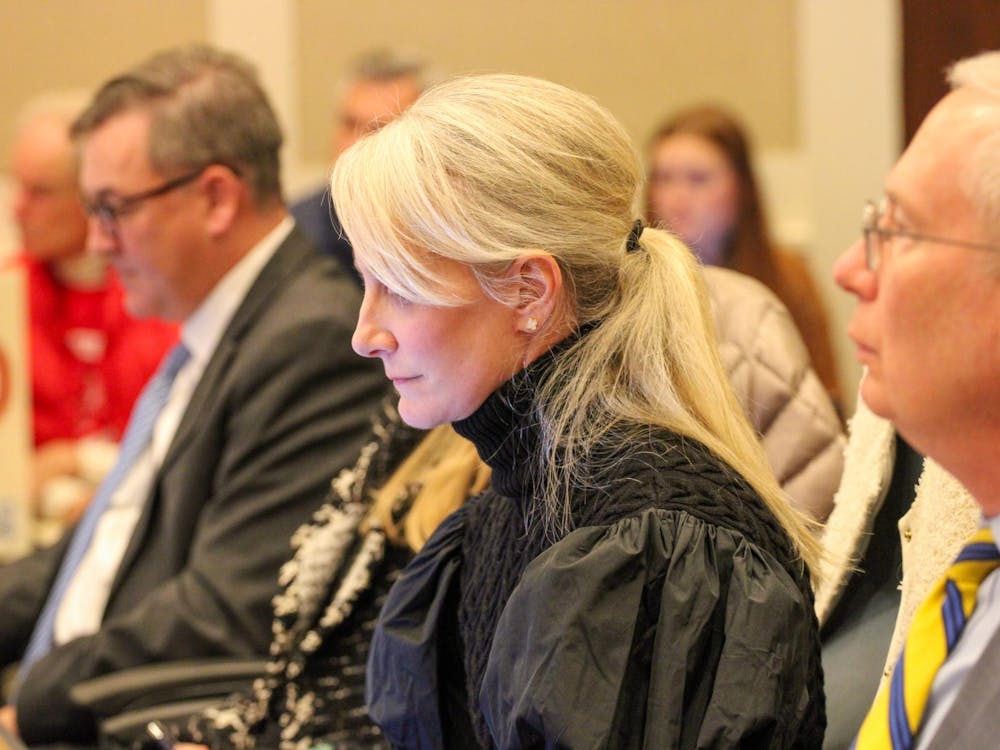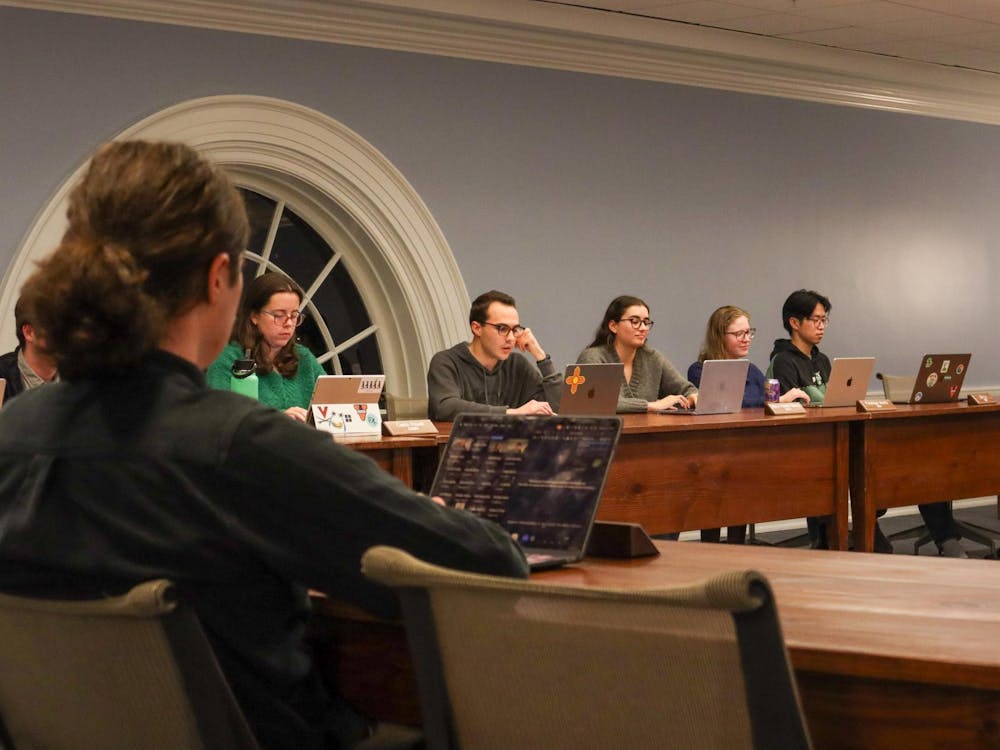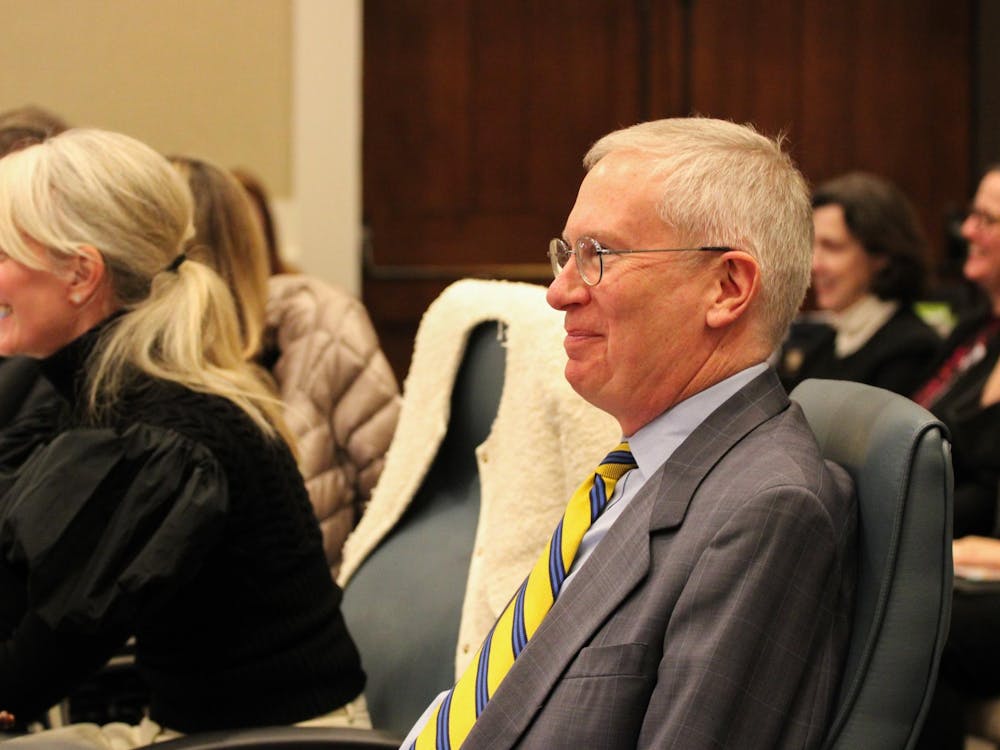The University stands to gain considerably from the 7 percent increase in national science research funding recently proposed by the Clinton administration.
Congress currently is reviewing Clinton's Science and Technology Initiative, which was unveiled in the 2001 Federal budget proposal and supports a $2.9 billion increase in research funding over the 2001 fiscal year.
"It's significant because it's higher this year. In past years it was 3 percent," Microbiology Prof. David Brautigan said.
Federal funding is the lifeblood of science and medical research at the University, and without it, many scientific breakthroughs might have been impossible.
Last year 76 percent of the research budget at the University came from federal agencies such as the National Institutes of Health and the National Science Foundation.
"NIH has received increased funding because Congress has decided that its previous funding has resulted in significant medical breakthroughs and led to an improvement of the nation," said Gene Block, vice president for research and public service.
Every year University scientists fill out grant applications in a competitive process for funds. The government ranks the applications and distributes funds accordingly. The number of projects supported is dependent on the research budget allocations of the federal government for that fiscal year. Usually, only 25 percent of the applications are approved.
"It's like writing term papers for money. But only 25 percent pass," Brautigan said.
Block said the increased amount of funding for government agencies in Washington such as NIH and NSF would trickle down and benefit the University.
"If there are significant increases in agencies in Washington, we get a nice, good share of it. And it is possible that professors will have more success with obtaining funding," Block said.
Associate Psychology Professor Jonathan D. Haidt recently went through this process, and the NIH awarded him a $68,067 grant for his research on moral opposition towards drug use. The amount of money awarded in a grant varies widely from project to project.
"The type of grant I received pays smaller amounts of money and is geared towards researchers early in their careers," Haidt said.
Overall, Haidt said he felt positive about the funding process, even though "it took a long time for the money to arrive at the University." In order to obtain his grant, Haidt first had to complete an NIH grant application, which was reviewed and ranked by a panel of peers. Based on this ranking and the monies available, the panel awarded grants to Haidt and other researchers around the country. Haidt's grant is used to pay the researchers as well as purchase equipment necessary for the project.
Although federal funding is necessary to maintain a high level of scientific research at the University, it also is a good indication of the strength of a science department in general. When researchers in a department are awarded large sums of money, this indicates that their peers consider the research groundbreaking and important.
Clinton's budget proposal stresses the importance of this basic research at universities and colleges. Basic research includes exploration into fundamental questions and general theories, whereas applied research concentrates on finding a specific remedy.
Private companies usually fund applied research, while basic research, which is generally done at universities, must rely heavily on government funding.
Increasing government funding also will encourage learning and exploration, which has been a nationwide passion, Block said.
The Clinton administration's proposal supports this: "The competitive grants process upon which university research relies fosters innovation and expands scientific frontiers," the proposal reads.
"The way they can justify this increase is that it leads to an improved health of citizens, a more competitive economy and simply a passion for knowledge," Block said.
The report also recognizes the importance of undergraduate involvement in science research now and in the future. An increase in research funding "creates incentives to encourage promising students to pursue careers in science and technology."
Block noted the role of science departments is twofold. Not only do they have the responsibility of performing possible groundbreaking research, they also have the duty to teach undergraduates.
"Undergraduates work in the laboratory, so it's not just in the classroom but also through the laboratory activities that students learn. So by promoting research you also promote education. The roles are intertwined," Block said.
The University receives a significant part of its teaching and research budget from federal funding - about 20 percent, or $140 million. In the 1999 President's Report, President John T. Casteen III gave credit to faculty for research funding increases at University. "The significant increase in revenue reflects the success of the University's faculty in obtaining support for their research and related activities," Casteen said in the report.
The report did not mention that the University ranks 37th and 53rd, respectively, among U.S. universities in obtaining funds from the two biggest federal funding agencies, NIH and NSF. These statistics "reflect that the main strength at the University is in the humanities," Haidt said.






